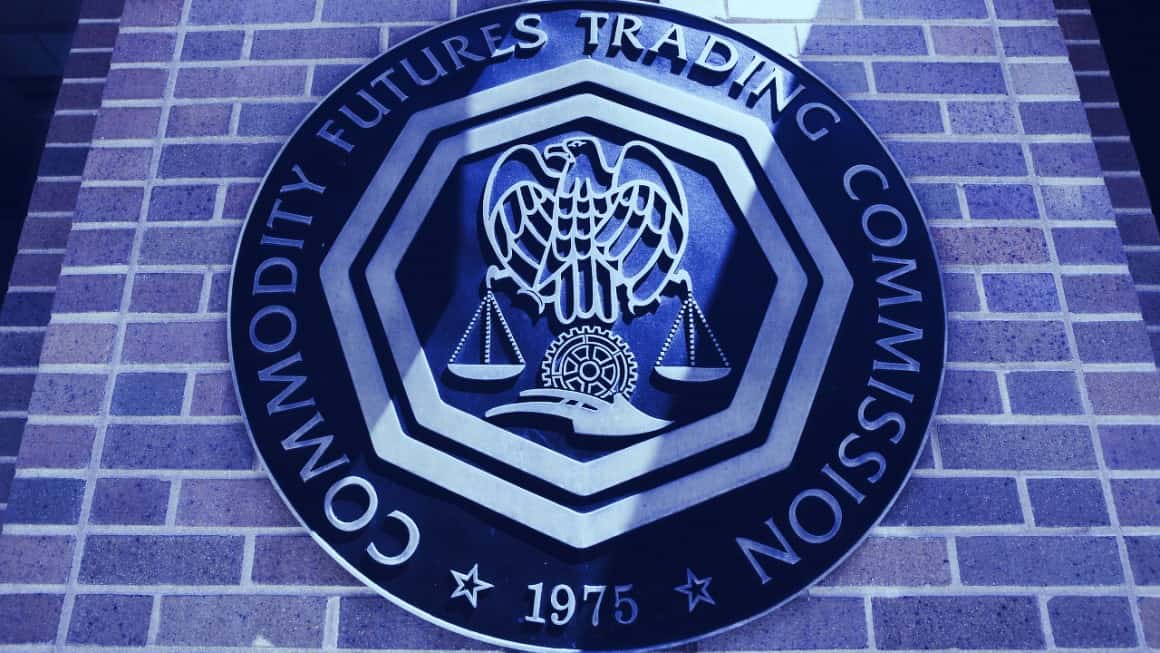A shift in how U.S. regulators view cryptocurrencies may be underway following a number of recent announcements by financial agencies.
One agency is the Commodity Futures Trading Commission (CFTC), which recently unveiled plans for the regulation of cryptocurrencies by 2024, a move that experts say may help bolster institutional adoption of digital assets.
The CFTC’s new strategic plan highlights regulators’ need to address the risks and opportunities arising from what they call “21st century commodities.” The CFTC’s goal is to “develop a holistic framework to promote responsible innovation in digital assets,” signalling that regulators are looking beyond traditional commodity classes and considering how blockchain is transforming financial products.
“The CFTC’s goal is to foster innovation and improve regulation for market participants,” said Malcolm Wright, Chief Compliance Officer at Diginex, a Hong Kong-based fintech firm. ”With growing interest in crypto derivatives, we believe the proactive move by the CFTC will ultimately help with further institutional take-up of this burgeoning asset class and provide investors with the protection against poor quality providers.”
The CFTC’s plan, which is split into five parts, aims to strengthen the “resilience and integrity” of the U.S. derivatives markets, regulate the derivatives markets, encourage innovation, crack down on rule-breakers and improve the agency’s effectiveness.
“This is a bipartisan, consensus plan that can stand the test of time,” said CFTC Chairman Heath P. Tarbert on the plan’s announcement. “I am proud of the hard work that went into developing the plan and the unanimous support it ultimately received. It will guide the last of the CFTC’s unfinished business to completion and better position the agency to tackle the unwritten future.”

The CFTC classifies cryptocurrencies such as bitcoin and ether as commodities, and the agency has previously issued designated contract market licenses to exchanges that offer futures on those commodities. ErisX, backed by TD Ameritrade, was recently given a thumbs up by the CFTC to launch an Ethereum futures trading platform.
However, the CFTF’s classifying cryptocurrencies as commodities doesn’t necessarily mean the agency provides an oversight role. The CFTC oversees commodity derivatives, but generally has authority over underlying commodities only in certain limited circumstances.
“Counterintuitively, calling a cryptocurrency a commodity actually limits the CFTC’s oversight role,” Benjamin J. A. Sauter, partner at New York-based international law firm Kobre & Kim, told Forkast.News. “The line separating when the CFTC does and does not have authority over commodities is a common subject of dispute, both in discussions with the regulator and in court during enforcement litigation.”
A trend toward crypto regulation
Experts say that regulators still need to undergo further education on the differences between crypto and traditional derivatives, as well as why the risks should be addressed in different ways.
The Financial Action Task Force is a regulator that has begun outlining stringent AML and counter-terrorism financing measures through their travel rule. The rule specifies that virtual asset service providers, such as exchanges and wallet providers, collect the personal information of users transacting over $1,000.
Prior to the guideline, some crypto firms were not undertaking the appropriate customer due diligence measures, which potentially made their platforms open to criminal exploitation.
Another, the U.S. Office of the Comptroller of the Currency, recently announced that major banks could act as crypto custodians.
The Securities and Exchange Commission has been cracking down on crypto companies that violate securities laws. But SEC Commissioner Hester Peirce, in a recent interview with Forkast.News, said she believed that the agency should reevaluate its use of the Howey Test and whether it is being misapplied to digital assets like cryptocurrencies.
“Capital markets can transform people’s lives, and so allowing the financial system to reach more people means that we have to really revisit some regulatory features that are in place now,” Peirce said. “Crypto is an opportunity for us to be introspective and to say, hey, are we handling innovation right?”

See related article: SEC ‘Crypto Mom’ Hester Peirce: US will lose out in crypto innovations if regulations remain in limbo
What impact does CFTC’s announcement have?
While some organizations such as Grayscale in the U.S., Arrano Capital in Hong Kong, and Stack in Singapore are already selling cryptocurrency derivatives, the CFTC says it is hoping to prevent abuses and push “responsible innovation in the crypto market.”
Bitcoin futures are already being traded on a number of exchanges, such as the Chicago Mercantile Exchange, one of the most well-known commodity derivatives markets. Crypto futures have already been subject to the well established process in place for commodity derivatives products reaching the U.S. marketplace, so it is unclear to experts what more can be done to regulate the sector.
“It’s at least conceivable that the CFTC intends to make it easier to deal in cryptocurrency derivatives, but more likely the CFTC is envisioning tighter regulations and more registration requirements,” Sauter said. “The CFTC’s Enforcement Division has been going after unregistered cryptocurrency derivatives markets since 2015, so it’s hard to envision them materially changing course now.”
To that point, the CFTC recently sanctioned two firms in the Philippines for offering illegal off-exchange swaps in digital assets.
“Ultimately, crypto derivative providers should have two keyframes to measure against — customer protection and anti-money-laundering (AML),” said Wright, of Diginex. “The first can be achieved through differentiated offerings for retail and institutional customers (such as leverage ratios), retail suitability assessments and warnings, and most importantly a fair liquidation process.”
Some experts are ambivalent on the CFTC granting permission for more cryptocurrency futures trading and believe it can lead to complicated results.
“On one hand, it allows for more futures trading in crypto markets, which will be beneficial for traders trying to hedge their positions (and yes, of course, useful for pure speculators, within whatever position limits the CFTC may set),” said Jason Gottlieb, a partner at Morrison Cohen, a New York-based international law firm. “On the other hand, it enables the CFTC to bring more crypto trading under its ambit — the more coins have futures, the stronger the CFTC’s argument that in general, cryptocurrencies have futures, and thus the CFTC is jurisdictionally empowered to regulate fraud in the spot market for cryptocurrencies.”
According to Gottlieb, empowering the CFTC could be both good and bad. It could be useful to have a fraud enforcer on the beat to punish and deter illegal activity. However, the CFTC may be less capable of being a fraud enforcer than the Securities and Exchange Commission (SEC).
“The CFTC is much smaller, with a much smaller enforcement staff, and far fewer resources,” Gottlieb said. “If enforcement moves away from the SEC and to the CFTC, without any change in their relative capacities, there will be less enforcement.”

See related article: Chris Giancarlo: digital dollar technology is coming ‘fast and furious.’ Can US seize the CBDC momentum?
Are ‘altcoins’ securities too?
While bitcoin and ether — the cryptocurrency for the Ethereum network — are regarded as securities by the SEC, others could fail the definition outlined by the Howey Test, including companies that use such tokens to carry out initial coin offerings. The Howey Test is used by agencies like the SEC to determine whether a transaction is an investment contract.
“Robust AML programmes are the gatekeeper to knowing not only the platform is appropriately risk mitigated but also dealings with any counterparty,” Wright said.
But while the CFTC’s plans encompass well-known digital assets such as BTC and ETH, how should the regulator deal with alternative cryptocurrencies such as Ripple’s XRP, which former CFTC chairman Christopher Giancarlo has said is not a security?
“For a token to be classified as a commodity, it does not need to be a security first,” Wright said. “It may be that the CFTC’s approach will be limited until it becomes satisfied that the market dynamics and protections are working properly.”
While that may be seen as a prudent approach, it may demonstrate a limitation on other tokens that the CFTC may be willing or legally able to oversee.
“Providers could potentially still operate outside the U.S. with other token pairs in the crypto derivative space,” Wright said.




